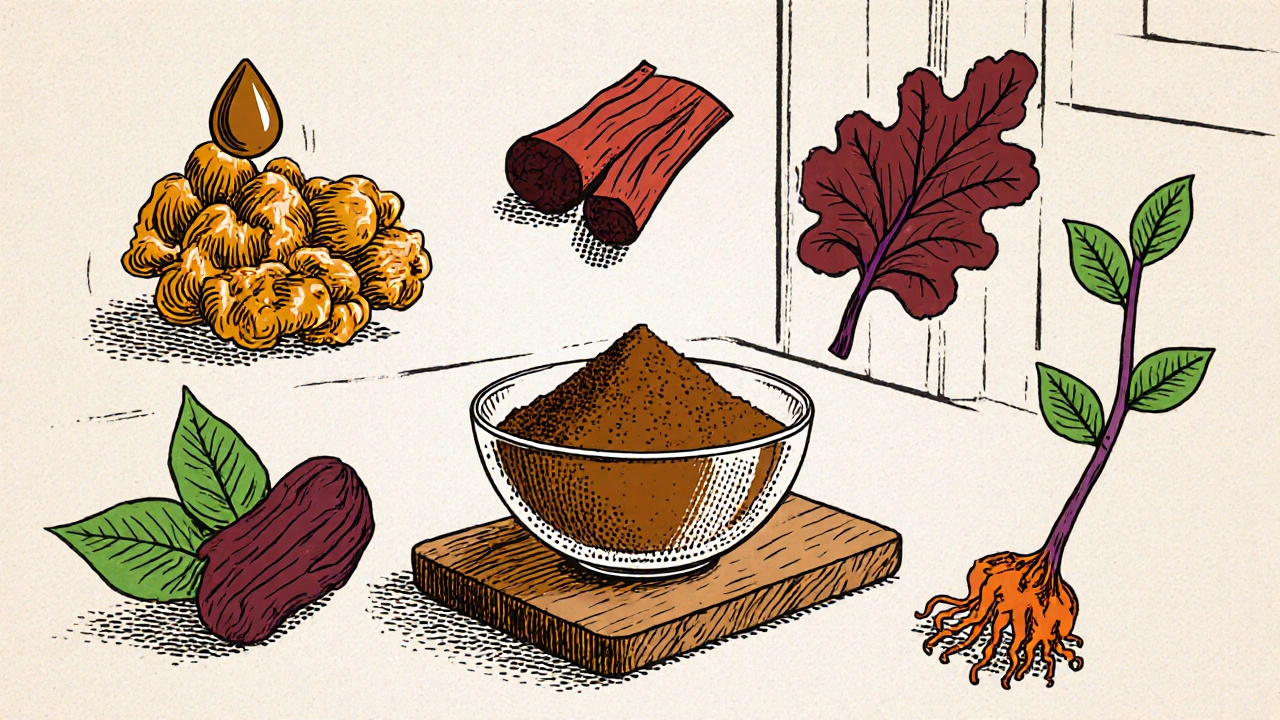Ayurvedic Kidney Support: Natural Ways to Protect Your Kidneys
When it comes to Ayurvedic kidney support, a traditional Indian system of medicine that uses herbs, diet, and lifestyle to promote natural healing. Also known as Ayurveda, it focuses on balancing the body’s inner systems—especially the kidneys, which filter toxins and manage fluid levels. Unlike Western medicine that often treats symptoms with pills, Ayurveda looks at the whole person: what you eat, how you sleep, even your stress levels. It’s not about quick fixes—it’s about keeping your kidneys working well over time.
Many of the herbs used in Ayurvedic kidney support have been studied for their effects on kidney function. Punarnava, a climbing plant used for centuries to reduce swelling and support urinary flow, is one of the most common. Then there’s Gokshura, also called Tribulus terrestris, known for helping with urine output and reducing crystal buildup in the kidneys. These aren’t just folklore—they’re used in modern Ayurvedic clinics in India and studied in journals like the Journal of Ethnopharmacology. People with early-stage kidney stress, high blood pressure, or recurring UTIs often turn to these herbs as part of a daily routine.
But Ayurvedic kidney support isn’t just about swallowing powders or teas. It’s tied to what you drink (warm water, not ice), when you eat (regular meals, no late-night snacks), and how you move (gentle yoga, walking). It avoids processed salt, fried foods, and excess sugar—all things that strain the kidneys. Unlike some supplements that promise miracles, Ayurveda works slowly. You won’t see results in a week, but over months, people report less swelling, better sleep, and more energy.
What you won’t find in this collection are wild claims like "cure kidney failure in 30 days." What you will find are real comparisons, user experiences, and science-backed insights on how these herbs actually work. You’ll see how Punarnava stacks up against diuretics, how Gokshura affects blood pressure, and what risks come with mixing Ayurvedic herbs with prescription meds. There’s also advice on spotting fake products, choosing trusted brands, and knowing when to skip herbs entirely—like if you’re on dialysis or have advanced kidney disease.
Whether you’re looking to prevent kidney trouble, manage early signs, or just reduce your reliance on daily pills, the posts below give you the no-fluff truth. No marketing hype. Just what works, what doesn’t, and what you need to know before you try it.

- Oct 23, 2025
- Posted by Cillian Osterfield
Slimonil vs Other Herbal Diuretics: Detailed Comparison and Alternatives
A thorough look at Slimonil, its six herbal ingredients, how it works, and a side‑by‑side comparison with Mahasudarshan Churna, Triphala and conventional diuretics.
Categories
- Health and Wellness (72)
- Medications (69)
- Health and Medicine (28)
- Pharmacy Services (12)
- Mental Health (9)
- Health and Career (2)
- Medical Research (2)
- Business and Finance (2)
- Health Information (2)
Latest Posts
©2026 heydoctor.su. All rights reserved





